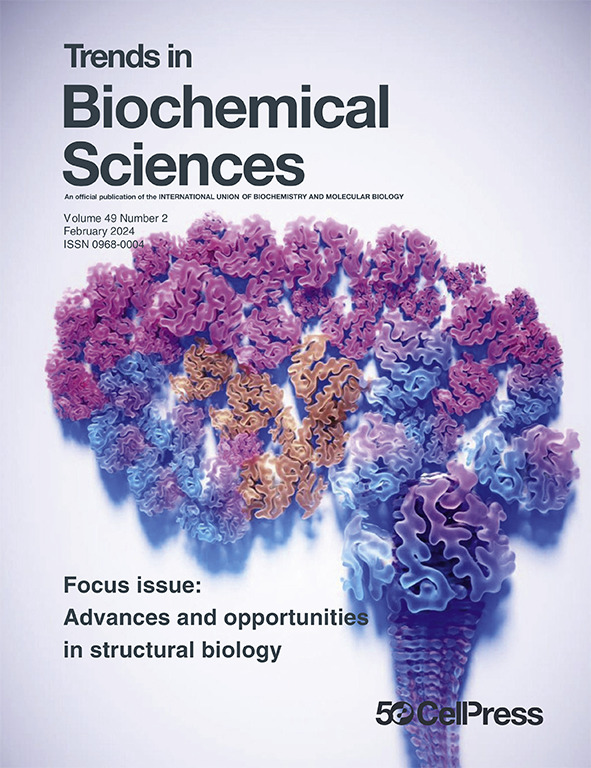Protein N-terminal modifications: molecular machineries and biological implications
IF 11
1区 生物学
Q1 BIOCHEMISTRY & MOLECULAR BIOLOGY
引用次数: 0
Abstract
The majority of eukaryotic proteins undergo N-terminal (Nt) modifications facilitated by various enzymes. These enzymes, which target the initial amino acid of a polypeptide in a sequence-dependent manner, encompass peptidases, transferases, cysteine oxygenases, and ligases. Nt modifications – such as acetylation, fatty acylations, methylation, arginylation, and oxidation – enhance proteome complexity and regulate protein targeting, stability, and complex formation. Modifications at protein N termini are thereby core components of a large number of biological processes, including cell signaling and motility, autophagy regulation, and plant and animal oxygen sensing. Dysregulation of Nt-modifying enzymes is implicated in several human diseases. In this feature review we provide an overview of the various protein Nt modifications occurring either co- or post-translationally, the enzymes involved, and the biological impact.
蛋白质n端修饰:分子机制和生物学意义。
大多数真核蛋白在各种酶的促进下进行n端修饰。这些酶以序列依赖的方式靶向多肽的初始氨基酸,包括肽酶、转移酶、半胱氨酸加氧酶和连接酶。Nt修饰-如乙酰化,脂肪酰化,甲基化,精氨酸化和氧化-增强蛋白质组的复杂性,调节蛋白质靶向,稳定性和复合物的形成。因此,蛋白N末端的修饰是许多生物过程的核心组成部分,包括细胞信号传导和运动、自噬调节以及植物和动物的氧感应。nt修饰酶的失调与几种人类疾病有关。在这篇综述中,我们提供了各种蛋白质Nt修饰的概述,无论是共同或翻译后,所涉及的酶和生物学影响。
本文章由计算机程序翻译,如有差异,请以英文原文为准。
求助全文
约1分钟内获得全文
求助全文
来源期刊

Trends in Biochemical Sciences
生物-生化与分子生物学
CiteScore
22.90
自引率
0.70%
发文量
148
审稿时长
6-12 weeks
期刊介绍:
For over 40 years, Trends in Biochemical Sciences (TIBS) has been a leading publication keeping readers informed about recent advances in all areas of biochemistry and molecular biology. Through monthly, peer-reviewed issues, TIBS covers a wide range of topics, from traditional subjects like protein structure and function to emerging areas in signaling and metabolism. Articles are curated by the Editor and authored by top researchers in their fields, with a focus on moving beyond simple literature summaries to providing novel insights and perspectives. Each issue primarily features concise and timely Reviews and Opinions, supplemented by shorter articles including Spotlights, Forums, and Technology of the Month, as well as impactful pieces like Science & Society and Scientific Life articles.
 求助内容:
求助内容: 应助结果提醒方式:
应助结果提醒方式:


